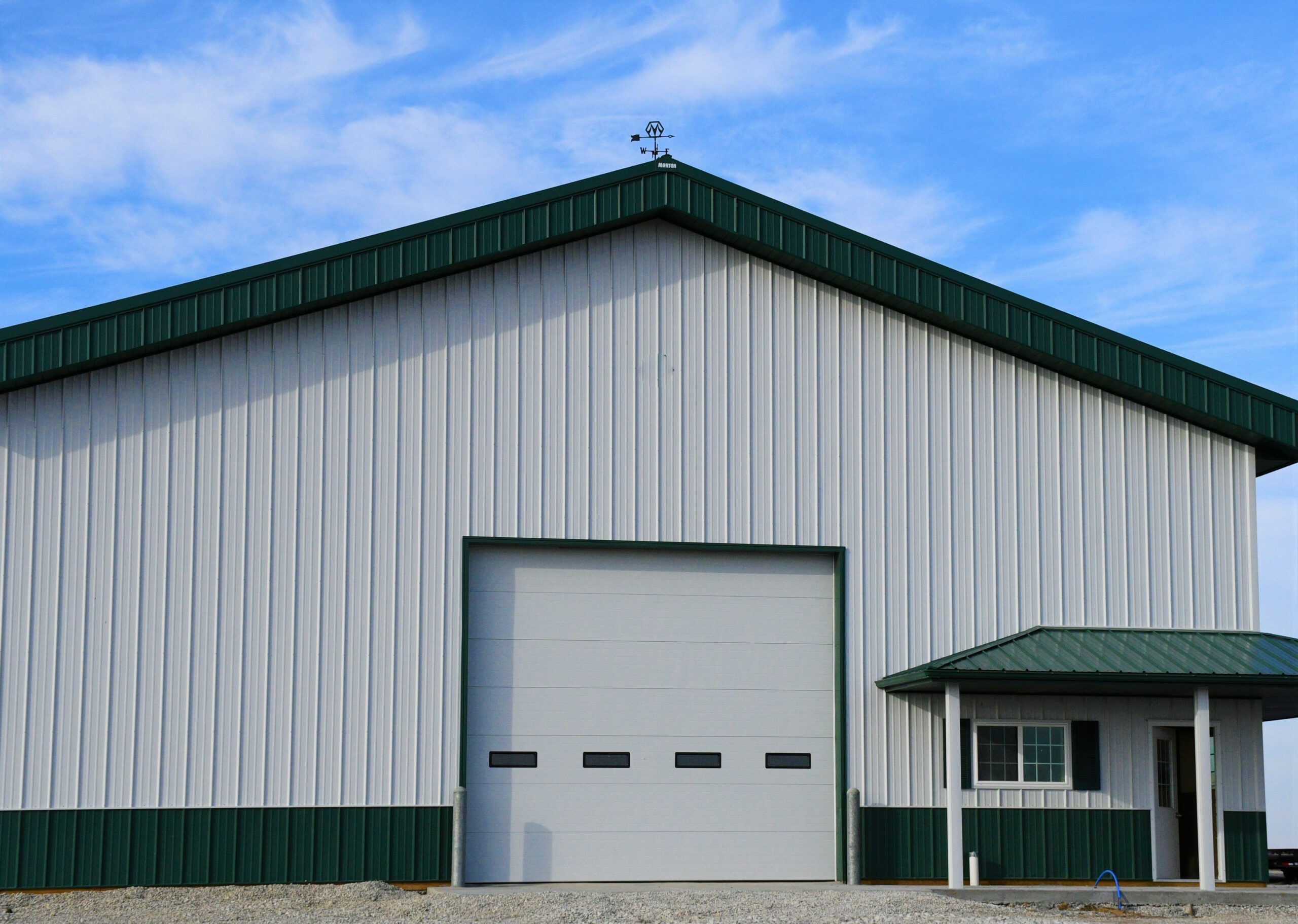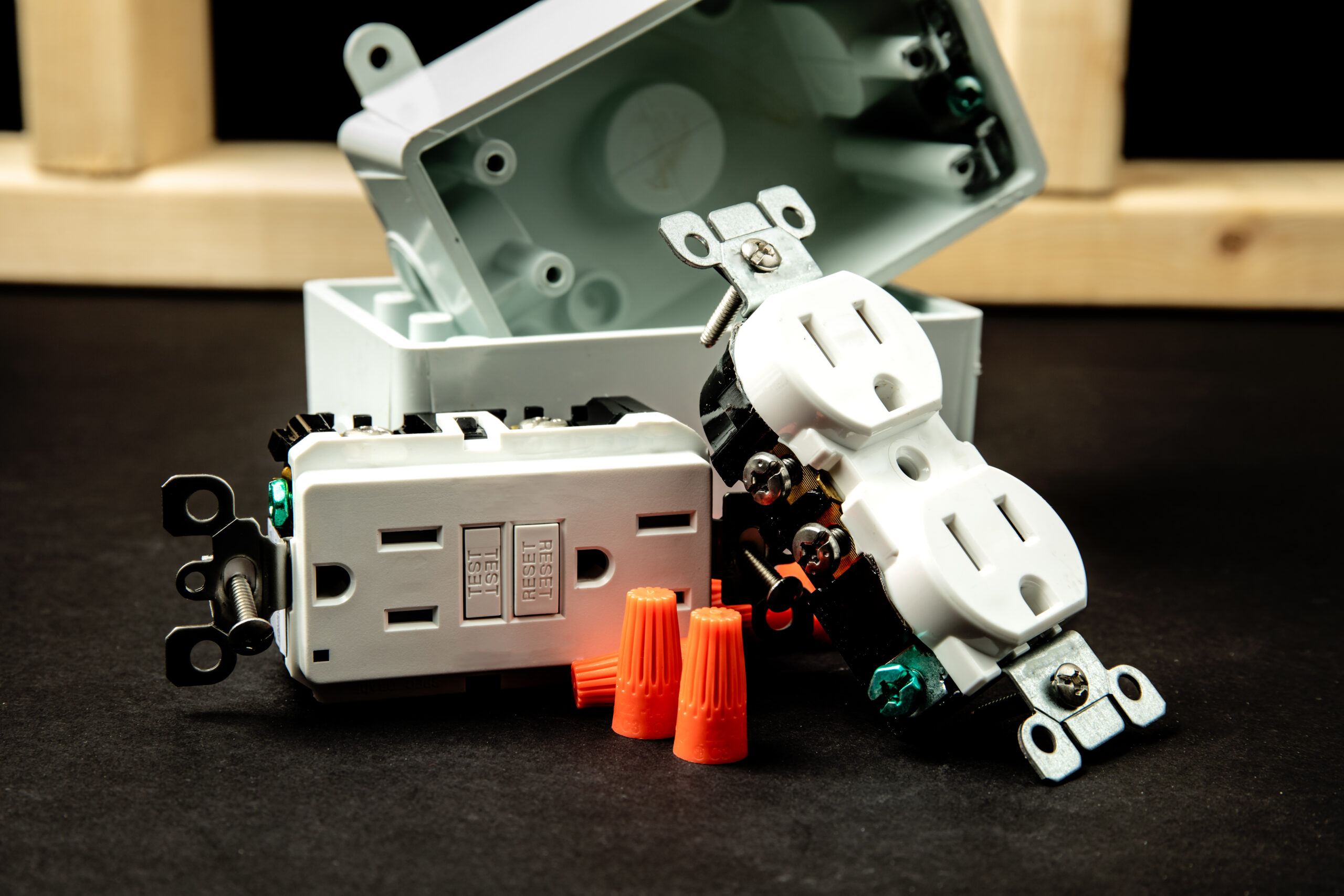When it comes to building pole barns, safety isn’t something to take lightly—unless, of course, you enjoy the occasional unintended fireworks show. But for those of us who prefer our barns shock-free, getting the right outlets installed is crucial. A pole barn can serve many purposes: maybe it’s your workshop, your tractor’s hideaway, or even a home for some chatty chickens. No matter the purpose, a safe and efficient electrical setup can mean the difference between happily tinkering away on your next project and, well, being on a first-name basis with your local fire department. So, let’s dive into pole barn electrical outlets, safety tips, and best practices. No need to be overwhelmed, we’ve got you covered with important information and a lot of experience in what not to do.

Why You Should Care About Pole Barn Electrical Outlet Safety
Pole barns are not your cozy living room. There’s moisture, dust, dirt, and maybe even a few critters that think your wiring looks like a snack. This means that the electrical needs of a pole barn are different from those of your house, and frankly, they deserve a little extra TLC. A barn without proper electrical outlet safety could quickly turn from a dream workspace to a potential disaster zone.
In fact, one of the most common issues in pole barns is electrical fires. Yep, that’s right—poor wiring, cheap outlets, or not taking moisture into account can literally light up your life (in the worst way possible). That’s why safety is not optional—it’s mandatory. Let’s talk about the things you should do before you even think about plugging anything into those shiny new outlets.
Moisture + Electricity = Bad News
Pole barns are often more exposed to the elements than we’d like to admit. Whether it’s high humidity in the summer or condensation from temperature changes, moisture can sneak into your electrical system faster than a raccoon into an open trash can. To avoid the risk of shock or fire, you’ll want to make sure your pole barn electrical outlets are protected with GFCI outlets (Ground Fault Circuit Interrupters). These little lifesavers automatically shut off power when moisture or an electrical short is detected.
Seriously, don’t skip this. GFCI outlets are like the lifeguards of the electrical world—they’ll stop the flow before anything gets out of hand.
Rodent Raves: Critters and Your Electrical Cables
If you’ve ever owned a barn, you already know it’s not just your tractor hanging out in there. Mice, squirrels, and other adorable (yet destructive) critters love to gnaw on electrical wires. We’re not sure why they have a taste for copper, but we do know this: you don’t want chewed-up wires in your barn.
One of the best ways to keep these unwanted guests from feasting on your wiring is to use conduit piping to protect the cables. Metal conduit is especially effective—it’s like armor for your electrical system. We can almost hear the mice grinding their tiny teeth in frustration.
Choosing the Right Pole Barn Electrical Outlets
Okay, now that we’ve scared you a little bit (you’re welcome), let’s talk about what kinds of outlets will keep your barn powered up and safe. Because not all outlets are created equal, especially when we’re talking about a barn.
Outdoor-Rated Electrical Outlets: Because Barns Aren’t Living Rooms
Even if your pole barn has walls and a roof, it’s still considered a “semi-outdoor” environment. And we all know that barns are, shall we say, rustic. That means outdoor-rated outlets are essential, even for the inside. Why? These outlets are built to withstand the tough stuff—moisture, dirt, and whatever else nature (or your livestock) throws at them.
When shopping for outlets, look for ones that are UL-listed for damp or wet conditions. You don’t want to install standard indoor outlets just to find out they’ve shorted out after a rainy day. Trust us on this one.
Heavy-Duty Outlets for Serious Power Needs
If you’re using your barn as a workshop—or even if you just have a few power-hungry tools—you’re going to need something more than your basic 15-amp outlets. Tools like saws, welders, or heaters require more power, which means you’ll need 20-amp or higher-rated outlets.
We’re not saying your barn should be able to power a small village, but it definitely needs outlets that can handle the load. If you’ve ever tripped a circuit breaker in the middle of a project, you know it’s not the kind of excitement you want.
Planning Ahead: Add Extra Outlets Now, Thank Yourself Later
If there’s one thing barn owners regret, it’s not planning for enough outlets. It’s easy to think you’ll only need a few but trust us—future you will be much happier with extra outlets. Consider how you might use your barn in a few years. Will you add more tools? Lighting? Maybe even a sound system (hey, barn parties happen)?
Adding outlets during the initial installation is cheaper and less of a hassle than calling an electrician to add more later. Think of it like this: you wouldn’t build a barn with only one door, so why limit yourself to only a few outlets?

Best Practices for Installing Pole Barn Electrical Outlets and Systems
Now that you’ve got a handle on outlet choices, it’s time to talk about installation. And while it might be tempting to throw on a toolbelt and handle this yourself—don’t. This isn’t a weekend DIY project like hanging a shelf. Electrical systems in pole barns come with unique challenges, and it’s best to leave the hard stuff to the pros.
Always Hire a Licensed Electrician
We cannot stress this enough, hire a licensed electrician. Your neighbor might offer to help after watching a few YouTube videos, but unless they have the proper training, politely decline. A licensed electrician will ensure that your electrical system is up to code, safe, and reliable.
One of the major benefits of hiring a pro is that they’ll pull all the necessary permits and ensure your setup passes inspection. Plus, if anything goes wrong later, you’ll have someone to blame who isn’t, well, you.
Following Local Codes Isn’t Just a Suggestion
If you’re anything like me, the phrase “local codes and regulations” might make your eyes glaze over. But trust me, following your area’s building and electrical codes is essential. Every county has its own rules, and ignoring them isn’t just risky; it can be expensive. Installing outlets in the wrong place or using improper wiring could lead to a failed inspection (and trust us, you never want to be on the inspector’s bad side).
Weatherproof Boxes and Covers: Your Pole Barn Electrical Outlets’ Best Friends
Even if your outlets are inside the barn, it’s worth investing in weatherproof boxes and covers. These offer an extra layer of protection from dust, debris, and the occasional animal that decides to bump into things. And if you’re installing outlets outside the barn, these are an absolute must.
There’s nothing worse than seeing water pooling around an unprotected electrical box. Scratch that—there is something worse, and that’s dealing with the aftermath of what happens next.
Grounding Your Pole Barn: Not Optional, Folks
Let’s talk about grounding. When it comes to electricity, grounding is like the safety net that catches you if things go wrong. Without proper grounding, any stray electrical current has nowhere safe to go, which could lead to fires, electrical shocks, or even worse.
How to Properly Ground Your Pole Barn
Your barn’s electrical system should be grounded with a proper grounding rod that’s installed at least six feet deep into the earth. This ensures that any excess electricity safely dissipates into the ground. Think of it as giving electricity an exit strategy. Without it, you’re increasing the risk of serious danger.
Make sure your electrician installs the grounding rod correctly, and check with local regulations to ensure it meets all the required codes.
Lighting Your Pole Barn: Bright Ideas for Safe and Efficient Use
Once your outlets are in place, it’s time to think about lighting. Whether you’re working late into the evening or just want to make sure you can find that wrench that always seems to disappear, good lighting is essential.
LED Lighting: The Energy-Efficient Champion
For most pole barns, LED lighting is the way to go. Not only are LED lights energy-efficient (meaning they’ll save you money on your electric bill), but they also provide bright, even light that’s perfect for working. Unlike traditional bulbs, LEDs don’t get hot, making them a safer option if your barn is prone to stuffiness.
Plus, they last a lot longer, so you won’t have to climb up on a ladder every few months to replace burnt-out bulbs. If we had to pick one lighting option for a barn, LEDs would win every time.
Consider Motion Sensors and Timers
Want to save even more energy? Install motion sensors or timers on your lights. This way, the lights will automatically turn off when you’re not around. Who hasn’t left the lights on in the barn, only to realize it hours later? Motion sensors take that worry off your plate. Plus, they add a little high-tech flair to your setup.
How to Avoid Common Mistakes with Pole Barn Electrical Outlets
Even with the best of intentions, there are some mistakes that people make all too often when it comes to installing electrical outlets in their pole barns. But don’t worry—we are here to help you avoid these missteps.
Mistake #1: Skimping on Power
One of the biggest errors we see is people underestimating their power needs. Sure, you might only need a few outlets today, but what about next year? Or five years from now? It’s always better to go with a little extra power capacity than to find yourself tripping breakers every time you try to use more than one tool at a time.
Mistake #2: Ignoring Moisture Issues
This one might seem obvious, but you’d be surprised how many people install standard outlets in areas prone to moisture. Water and electricity are not friends. If you’re working in a barn that’s exposed to humidity, condensation, or temperature fluctuations, make sure your outlets are moisture-resistant and GFCI protected.
Mistake #3: DIY Electrical Work
Everyone wants to save a little money by tackling projects themselves. But when it comes to pole barn electrical work, it’s not worth the risk. Unless you’re a licensed electrician, leave this one to the pros.
 CK Electric: Your Trusted Pole Barn Electrical Outlet Experts in Central Maryland
CK Electric: Your Trusted Pole Barn Electrical Outlet Experts in Central Maryland
Setting up pole barn electrical outlets doesn’t have to be overwhelming, but it does need to be done right. From choosing the right outlets to ensuring proper grounding and safety features, every step matters. The good news? CK Electric is here to help. As Central Maryland’s trusted licensed electrical company, we specialize in pole barn electrical installations that keep your barn safe and functional for years to come.
Whether you’re building a brand-new pole barn or upgrading your current setup, you can count on CK Electric for reliable, professional service. Contact us today, and let’s make sure your pole barn is powered up, safe, and ready for whatever you’ve got planned—whether it’s work, storage, or even the occasional barn party.
We provide electrical services for the following areas: Sykesville, Westminster, Eldersburg, Ellicott City, Frederick, and all of Central Maryland. Call us at 443-920-3078 or email us at info@ckelectricllc.com. We are happy to serve you!
FAQs
How many outlets should I install in my pole barn?
It’s always better to have too many than too few. Plan for your current needs and consider future expansion.
Do I need special wiring for my pole barn?
Yes! Outdoor-rated wiring is essential to protect against moisture, dirt, and other environmental factors.
What is GFCI, and why do I need it in my pole barn?
GFCI stands for Ground Fault Circuit Interrupter. It protects against electrical shocks by shutting off power if a fault is detected.
How can I prevent rodents from damaging my pole barn wiring?
Using metal conduit to protect your wires is the best way to keep those pesky critters at bay.
Should I install LED lighting in my pole barn?
Absolutely. LED lights are energy-efficient, long-lasting, and provide excellent visibility for your workspace.
Can I install electrical outlets in my pole barn myself?
It’s best to leave electrical work to a licensed and seasoned professional like our company, CK Electric, to ensure everything is up to code and safe.
